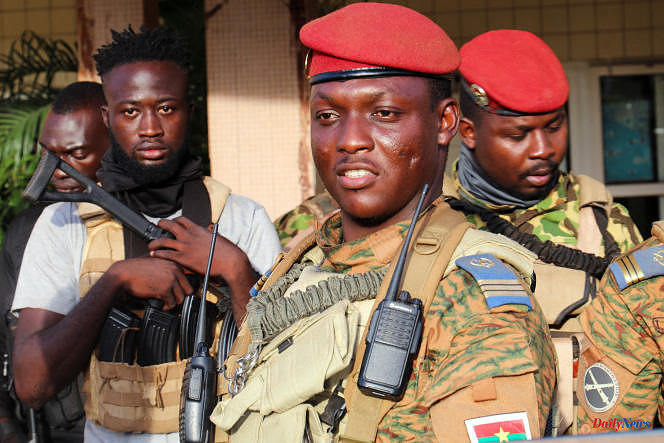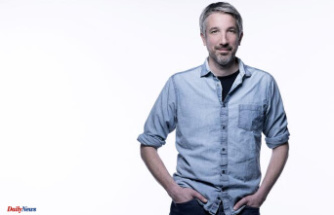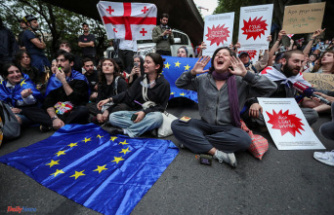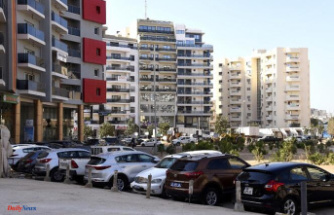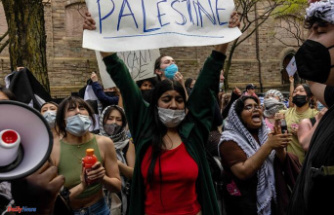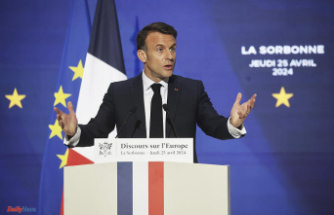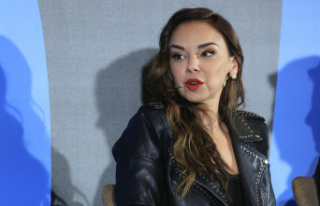Time has passed since the years when the young Ibrahim Traoré spoke on the benches of the University of Ouagadougou to defend his classmates. That was a little over ten years ago. At the time, did this former delegate of the National Association of Burkina Students (ANEB), a powerful Marxist-inspired student organization, imagine he would one day take the helm of his country?
The geology graduate has since received his captain's stripes, then he saw his country collapse in the face of jihadist violence and wrested power by force of arms in September 2022, becoming the youngest head of state at 35. of the world. But eight months after his putsch in Burkina Faso, Ibrahim Traoré remains an enigma. He is not very talkative, his speeches are controlled and reserved for the cameras of the junta, the press being knowingly kept at a distance from his movements.
Anxious to control his image, the captain controls his communication with an iron fist. No doubt he swore not to repeat the blunders of his predecessors. Those of Lieutenant-Colonel Paul-Henri Sandaogo Damiba, whose putsch he had supported in January 2022 before overthrowing it, who had been mocked for his lack of charisma. Or those of Roch Marc Christian Kaboré (2015-2022), too passive in the face of the terrorist threat and described as "diesel president" by the Burkinabés.
The country needs a warlord and that's what the young "IB" promised his fellow citizens. On May 4, in front of the cameras of Radiodiffusion-télévision du Burkina (RTB), Captain Traoré tried to convince, by specifying his plan to reconquer the vast swaths of territory deserted by the State, with the help of anecdotes from ground. Like the attack on the base of the United Nations Mission (Minusma) in Timbuktu, Mali, in 2018, where the former officer of the Burkinabe battalion of the UN force saw suicide bombers using "treachery" to infiltrate, disguised as blue helmets.
The lack of equipment in the army in Burkina Faso, with "four to five soldiers for a Kalash", he enrages. And the negotiations with jihadist leaders in 2020, under the Kaboré regime, to hold the elections, where he recounts having been ordered to stop the fighting and seeing "suitcases of money" parading at night. “It hurts the soldiers very much to see this. Worse, we were taunted. (…) The soldiers were discouraged, ”he fumes.
An "all-military" strategy
Ibrahim Traoré, originally from Kéra, in Boucle du Mouhoun, a region beset by attacks in the northwest, intends to lead an offensive and militia fight against terrorism. To support the army, the authorities claim to have recruited some 90,000 "volunteers for the defense of the homeland" (VDP), civilian auxiliaries regularly accused of blunders against civilians. "No question of negotiating", insists the officer, who rather wants to "attrition the enemy to the maximum" to force the combatants to "lay down their arms", the slogan which has become the leitmotif of the junta, chanted every evening in the newspaper of the national television.
An "all-military" strategy nurtured by his years spent at the front, since the outbreak of the jihadist insurrection in Burkina Faso in 2015. A man on the ground, the putschist cut his teeth over the debacles of the army and took part in several large-scale operations in the east and north of the country, notably in Djibo, where he was placed under the command of Lieutenant-Colonel Damiba, then commander of the group of anti-terrorist armed forces in 2017. "It was a very operationally committed officer, but he's a nervous and stubborn person, ”says a former comrade.
Ibrahim Traoré is part of this young generation of soldiers who graduated from the Georges-Namoano Military Academy, an officer training school less glorious than the Prytanée militaire de Kadiogo (PMK), including Damiba and many senior army officers. Burkinabé are from. In Kaya, where he was appointed artillery chief after the lieutenant-colonel's putsch, the captain spoke for the rising rumble of the troops with the hierarchy, before deciding to overthrow Damiba. "He is a rebel, a summary of the frustrations of the men of rank in the face of their senior officers who remained in the capital", sums up an analyst, preferring to speak on condition of anonymity.
"No need for foreign soldiers but for equipment"
Thanks to his age, his experience in the field and his language, "IB", as the Burkinabe call him, appeals to a part of the youth, which accounts for more than 70% of the population, but remains largely under-represented within political institutions. On January 17, back in his former university, of Marxist and Pan-Africanist influence, the Head of State was on conquered ground. Under the ovation of the students, five years after President Macron's speech on the same campus, he promised to review the military agreements with France, the former colonial power to guarantee the "sovereignty" of Burkina Faso.
A few days later, his government will give French soldiers stationed near the capital for nearly twelve years a month to leave. The captain is now turning to Turkey and Russia, new political and strategic allies. “The cooperation has been around for a long time, but here we are going further. We are satisfied because we manage to discuss what we are looking for as a means, support. It's frank," welcomed the Head of State, during his interview with the RTB.
Will Captain Traoré follow in the footsteps of his Malian counterpart, Colonel Assimi Goïta, who called in mercenaries from the Russian paramilitary group Wagner? In early December 2022, the Prime Minister of Burkina Faso traveled to Moscow for a "private visit", carried out on board a Malian army plane. A Western source says he met "senior Wagner officials there who probably offered him his services."
Since then, the authorities have denied any presence of Russian mercenaries on its soil. The Traoré regime seems, for the time being, to favor the use of its own forces in the fight against jihadists. “We do not need foreign soldiers, but equipment. We already have our VDPs who know the terrain better, ”insists a source close to the government.
Handling the sankarist verb and agitating the street
On April 19, Ibrahim Traoré sounded the "general mobilization", authorizing the requisition of Burkinabés over the age of 18 to participate in the war effort. Something to recall the "generalized popular defense" advocated by Thomas Sankara, the former revolutionary president assassinated in 1987 and whose ideals he regularly invokes during his speeches: "Patriotic mobilization", fight against "imperialism", "endogenous development »…
The former student leader knows how to handle the sankarist verb and agitate the street. As during his coup d'etat where, faced with the resistance of the Damiba camp, the putschist had not hesitated to accuse his superior of having taken refuge with the French forces to plan "a counter-offensive", stoking anger demonstrators and reversing the balance of power in his favour.
On social networks, propaganda and disinformation run at full speed. Weakened by the spiral of violence, the junta tries to federate around it, supported by a galaxy of activists who, freely, threaten death and insult critical voices. After the April 20 massacre in the village of Karma in the north of the country, where at least 150 residents were executed by suspected soldiers, messages quickly circulated accusing France of seeking to "destabilize" the transition.
Thousands of demonstrators gathered in the capital on May 6 to immediately denounce “planned terrorist massacres” by the international community. While gatherings remain banned since the putsch, Traoré's regime has let its supporters burn the flag of the European Union and NATO.
In Ouagadougou, a climate of fear and suspicion reigns. In recent weeks, the arrests of journalists and opponents have multiplied. According to the local press, several political figures, including former opposition leader and former minister Zéphirin Diabré, were interviewed by the judicial police. Uncertainty remains about a return of civilians to power and the holding of elections scheduled in principle for July 2024.
The Burkinabe junta's authoritarian turn speaks volumes about the fear of a conspiracy at the top, as Captain Traoré isolates himself and struggles to bring together a deeply torn army. In the heart of the capital, the new presidency, discreetly relocated to the premises of the Prime Minister facing national television a few months ago, has turned into a military fortress. Every night, groups of supporters take turns to keep "IB" safe.

